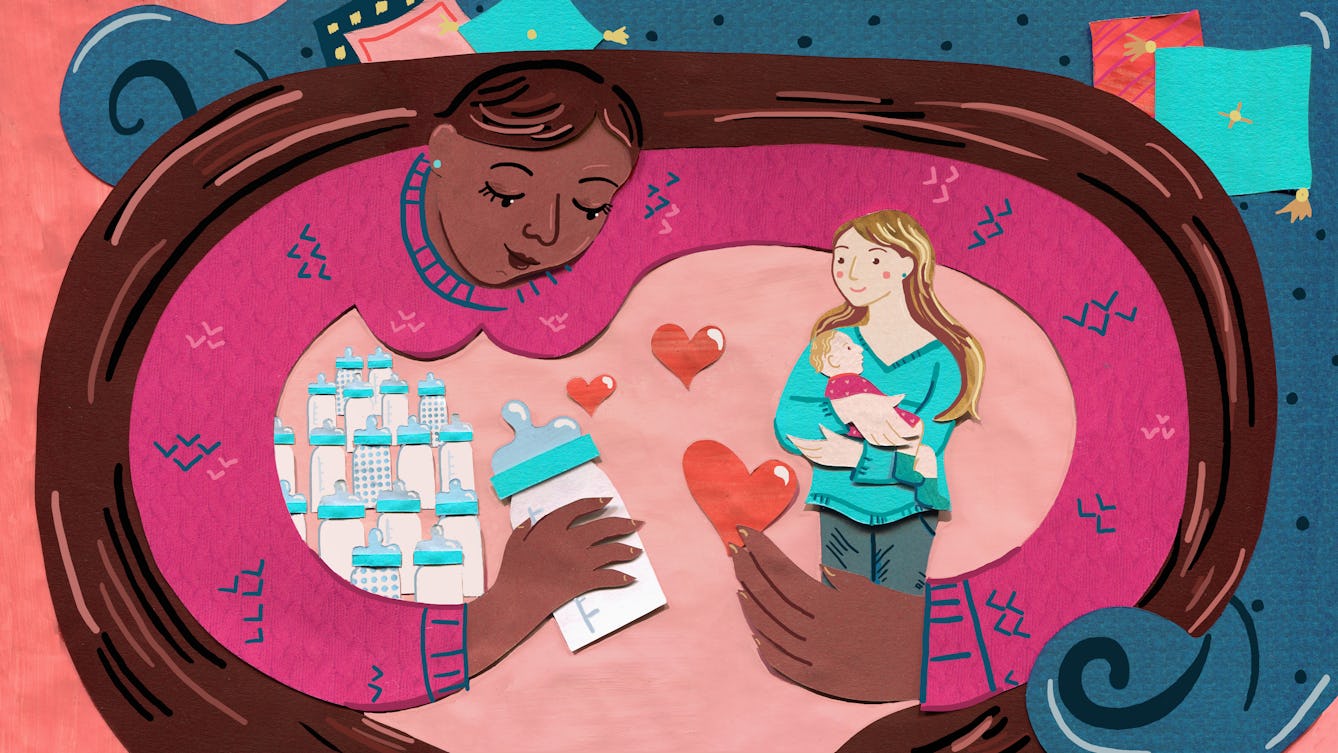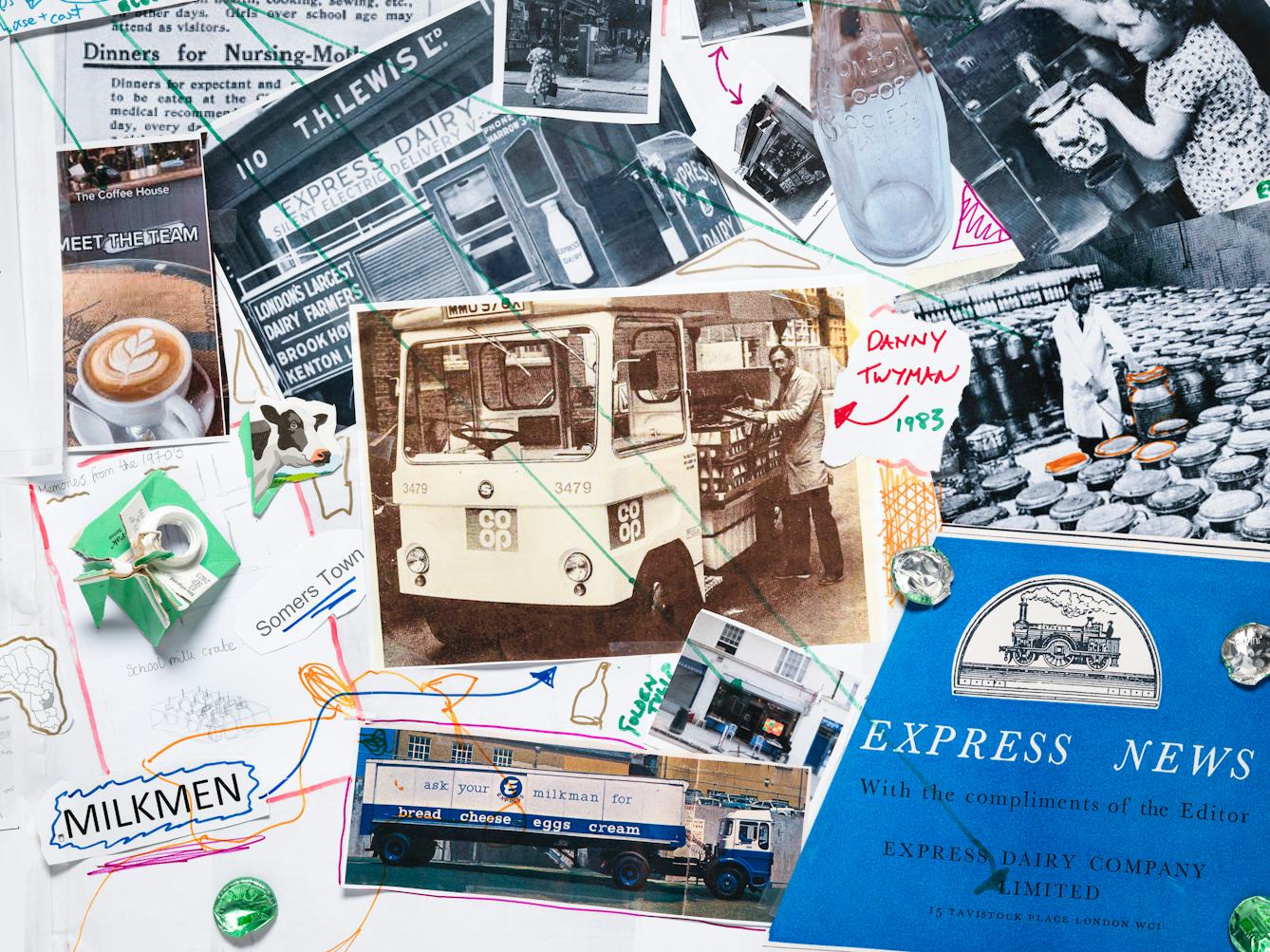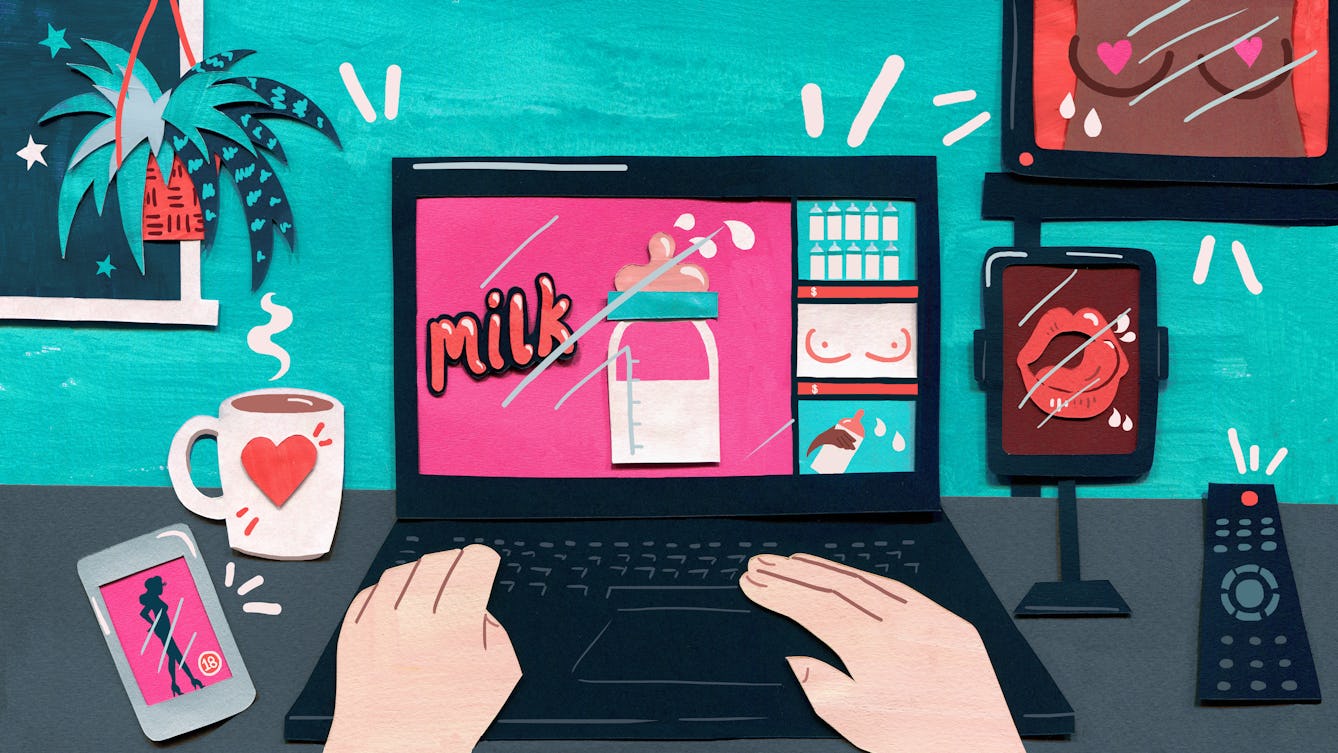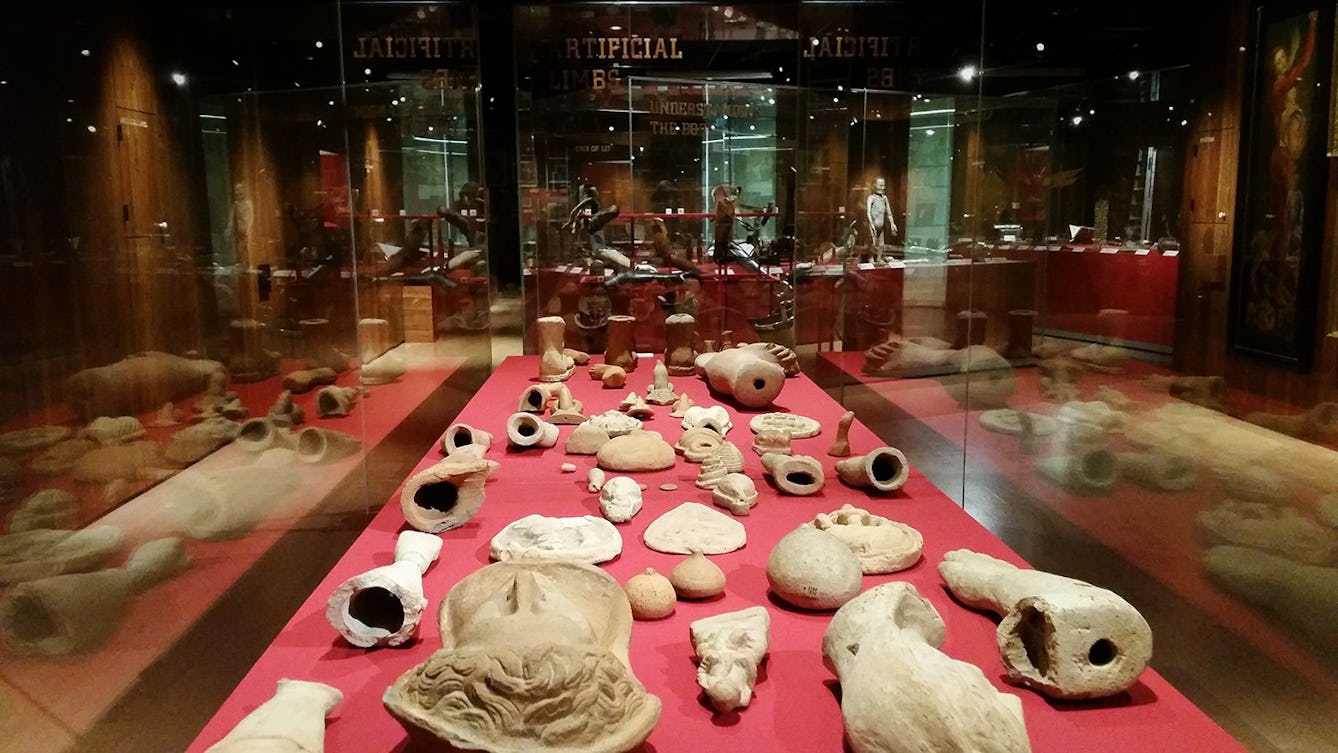
- Article
- Article
Confusion, guilt, and the battle to breastfeed
Most new mums are told that breast is best. But breastfeeding doesn’t always come as easily or naturally as you might imagine.

- Article
- Article
Mixed feelings and milk siblings
A friend in need has a profound effect on Alev’s feelings about women sharing their milk in this final instalment of ‘The Breastmilk Market’.

- Article
- Article
Written on my body
Scars mean David Jesudason has never enjoyed seeing his reflection. Recounting the stories behind the marks on his face and body, he finds the only one that symbolises hope and happiness.

- Article
- Article
Milk trails round Euston
Where cows once grazed near Wellcome Collection in London, baristas now froth their milk. Esther Leslie uncovers Euston’s dairy-based urban history.

- Article
- Article
The solidarity of sickness
Visiting an injured friend in hospital prompts writer Sinéad Gleeson to reflect on the instant rapport forged between compatriots in the kingdom of the sick.

- Article
- Article
Trading breastmilk with men
When Alev Scott advertised her milk for sale, she was inundated with messages from men keen to satisfy sexual fetishes. Here she finds out who they are, and why women sell to them.

- Article
- Article
How to play with drunk people
Lower your inhibitions and join Holly Gramazio for fast-paced games made even more fun by alcohol.

- Article
- Article
Ginger’s role in cures and courtroom battles
Some people will use a dose of ginger to help with hangovers – but it hasn’t always been a friend to the thirsty.

- Article
- Article
Delusional recycling and the problem with plastic
Many of us are guilty of wishful thinking when it comes to our rubbish. Arianne Shahvisi exposes shaky recycling infrastructure and overseas dumping, arguing for an end to waste colonialism.

- Article
- Article
Celebrating our soft toys
After cuddling a teddy bear cured her insomnia, Elspeth Wilson was inspired to speak to four other autistic and disabled adults, who praise the roles soft toys play in their lives.

- Article
- Article
Walk, interrupted
By listing all the things that get in her way, Caroline Butterwick wants to create an embodied experience of disability and convince you that inclusion is everyone’s responsibility.

- Article
- Article
Thousands of years of women’s pain
Even in the 21st century, women with severe monthly pain find their suffering minimised or dismissed by the medical profession. Such pain is seen as simply a natural part of being female.

- Article
- Article
Why the world needs collectors
Those who collect play an important role as “facilitators of curiosity”, says Anna Faherty.

- Article
- Article
The pain that punished feminists
In a society that viewed getting the vote, and pursuing an education and career, as unnatural goals for women, the pain of endometriosis was viewed as nature’s retribution.

- Article
- Article
Coleridge’s hypochondria
An intense focus on his own bodily sensations led poet Samuel Taylor Coleridge to self-medicate with narcotics. But this fascination also put Coleridge ahead of the medical sensibilities of his day.

- Article
- Article
Adapting to life as a thalidomide survivor
Growing up as a thalidomide survivor meant coping with all the usual challenges of childhood and adolescence, while having to fit into a world designed for the able-bodied.

- Article
- Article
Autistic togetherness during lockdown
While lockdown has presented autistic people with greater challenges than life pre-COVID, many have found strength and comfort in the situation. Autistic writer and performer Kate Fox explains how.

- Article
- Article
Between two summers
As Michael Malay tends his allotment, absorbing all the sensations of his surroundings, he finds the repetition of work calms the mind.

- Article
- Article
Thalidomide, a bitter pill
Hear from some of the women who took the drug thalidomide over sixty years ago about the fear, isolation and grief that they experienced as the appalling pharmaceutical scandal unfolded around them.

- Article
- Article
Getting the measure of pain
In the 20th century doctors tried to find a way to measure pain. But even when ‘objective’ measures were rejected, an accurate understanding of another’s pain remained frustratingly elusive.

- Article
- Article
The case for safe skin bleaching
Skin bleaching tends to attract a negative press for a whole host of reasons. But when used to treat medical problems, its positive side becomes clear.

- Article
- Article
Political brilliance and the power of self-promotion
How do you convince people you’re exceptional? Meet the ultimate self-styled genius.

- Article
- Article
Drugs in Victorian Britain
Many common remedies were taken throughout the 19th century, with more people than ever using them. What was the social and cultural context of this development?

- Article
- Article
Bubbles of history
Since the 1960s, scientists have been able to study the air from past centuries by analysing particles in Arctic ice samples. But as the polar ice melts, the future of this research is changing.

- Article
- Article
Disturbed minds and disruptive bodies
Prison officers tried to regulate women’s minds and bodies and maintain a new disciplinary routine in the second half of the 1800s.